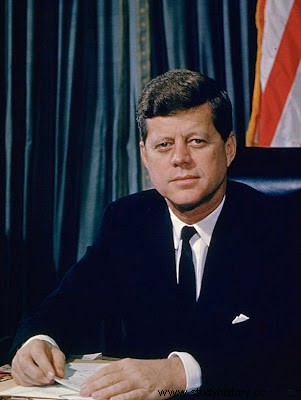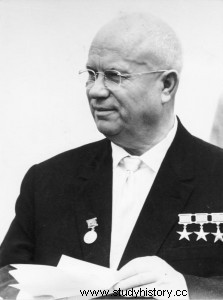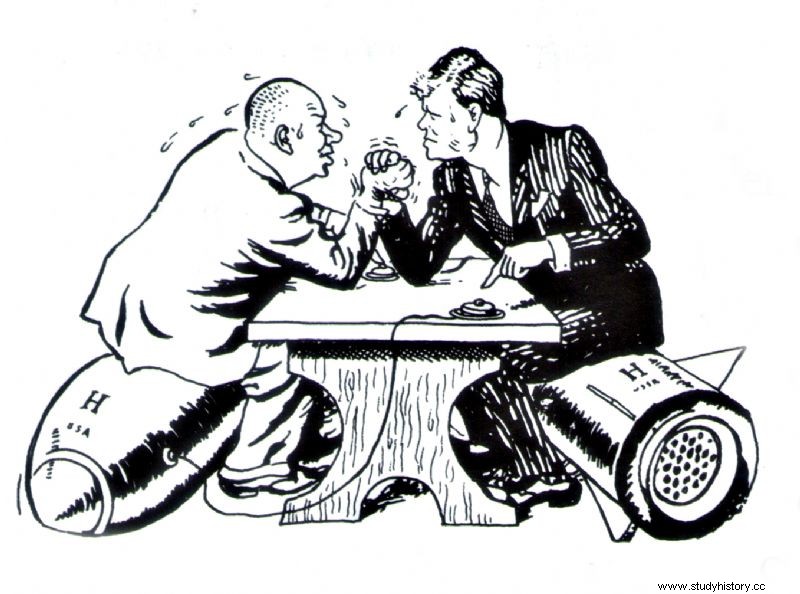The so-called Missile Crisis in Cuba was a conflict between the United States, the Soviet Union and Cuba in October 1962, generated as a result of the discovery by the United States of Soviet nuclear missile bases in Cuban territory. For 4 days, Kennedy secretly met with his advisers to make a decision on the possible alternatives to stop the conflict:an invasion or air attack, UN mediation or a naval blockade of Cuba. In the end, he opted for the block.
On October 22, 1962, in a 17-minute televised message, J.F. Kennedy announced the naval blockade of Cuba to prevent the Soviets from continuing to install nuclear missiles on the island.

On October 24, Nikita Khrushchev answered by letter:
[…] The Soviet Government considers that the violation of the freedom to use international waters is an act of aggression that pushes humanity towards the abyss […] Therefore, the Soviet Government cannot give instructions to the captains of its ships bound for Cuba to obey the orders of the American naval forces blockading the island. Our instructions to the Soviet seamen must strictly observe the universally accepted rules of navigation in international waters and we will not back down. And if the American side violates these norms, the responsibility will fall on the Americans […] Then we will be forced to take whatever measures we deem necessary and appropriate in order to protect our rights. We have everything we need to do it.

The tragedy seemed imminent but… on October 26 Khrushchev sent another letter to J.F. Kennedy in which he agreed to remove the missiles from Cuba in exchange for ending the US blockade and guarantees that he would not invade Cuba. Based on this proposal – the órdago launched by J.F. Kennedy had triumphed – On October 28, Khrushchev announced that he was going to dismantle the installations and remove the missiles, and expressed his confidence that the United States would not invade Cuba. At this time the so-called red telephone was created , the direct line between the White House and the Kremlin.

But there was yet another letter, from Khrushchev to J.F. Kennedy, which was not made public until 30 years later, in which something more was demanded of the US and which was really the basis of the agreement:
We agree to transfer the weapons from Cuba that you consider to be offensive weapons. We agree to do this and engage before the United Nations. Their representatives will make a statement to the effect that the United States, for its part, taking into account the anxiety and concern of the Soviet state, will withdraw its similar weapons from Turkey.[…] After this, the representatives of the Security Council of the UN could control on the ground the fulfillment of these commitments. Of course, it is necessary that the Governments of Cuba and Turkey allow these representatives to enter their countries and verify compliance with this commitment.
Ignoring this letter, in order to sign the public agreement on the first, meant J.F.Kennedy would be the winner against Khrushchev.
Sources:American Experience, American History,
